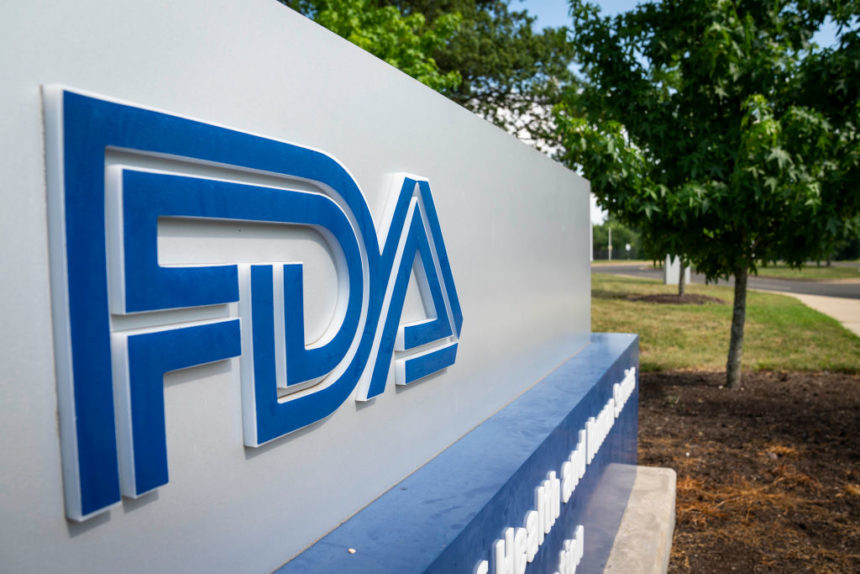Add an evidence contretemps to the controversy swirling around Biogen Alzheimer’s drug Aduhelm. The Food and Drug Administration’s decision to clear the medicine for marketing belied internal discord over how to interpret inconclusive trial data, internal memos show.
According to the memos released to the public on Tuesday, the agency overruled its own biostatisticians in order to sanction Aduhelm (aducanumab), the first new therapy for Azheimer’s in almost two decades. The documents further highlight the discord associated with the June 7 approval, already seen as one of the most contentious regulatory reviews in history.
The FDA greenlighted the treatment under accelerated approval, a pathway for conditionally approving drugs based on a “surrogate endpoint” despite lingering clinical uncertainty at decision time, provided the treatment addresses a significant unmet need.
Whether Aduhelm benefits patients by staving off the dementia related to the disease still remains cloudy. “The primary statistical review does not recommend approval,” one of the internal memos noted, referring to an analysis of the clinical trial data by Tristan Massie of the FDA’s biostatistics office.
At issue was the link between the surrogate endpoint – reduction of amyloid-beta plaque, the sticky substance typically observed in the brains of patients affected by the disease – and impact of the treatment on dementia. Two randomized, double-blind, placebo-controlled studies tested that link in patients with early-stage Azlheimer’s taking low and high doses of aducanumab over 18 months. Both studies were ended early for futility in March 2019.
Seven months later, Biogen reversed course, saying it planned to move ahead with an application based on an after-the-fact assessment of one trial, which showed a statistically significant effect on cognitive and functional impairment among those taking the higher dose. The other trial was negative in both low- and high-dose cohorts.
A summary memo sheds some new light on the company’s actions. Apparently, it was at a June 2019 meeting between Biogen and FDA that the parties concurred the studies should not have been stopped. Agency officials suggested the company reconsider whether conclusions could be drawn from the data, despite the early stoppage.
In October, they met again and agreed the studies could still be relied upon, per the memo. Biogen’s announcement that it was seeking approval for aducanumab came the next day, October 22.
The FDA’s office of neuroscience agreed with Dr. Massie, although two other review teams recommended that the drug did meet the bar for a standard approval. In the end, the agency’s top officials ruled that evidence had established a “reasonable likelihood” that reducing plaques will translate into clinical benefit – sufficient, at least, for doctors and patients to decide for themselves whether to take it.
“FDA, then, is faced with a situation where the available evidence on the clinical endpoints is short of what we would require for standard approval of aducanumab,” wrote Peter Stein, who heads up the FDA’s office of new drugs, in a memo explaining why he vouched for an accelerated approval. “At the same time, patients with [Alzheimer’s] have a serious, progressive, ultimately fatal disease and are desperate for treatments that delay progression and prolong well-functioning survival.”
The memos come amid widespread criticism over the approval of the drug, which some doctors argue was premature and some scientists insist didn’t follow the data – which have yet to prove the amyloid-plaque theory in a conclusive way. Three members of FDA’s panel of outside advisors have resigned in protest over the decision.
Health policy experts warn that Aduhelm, at a list price set by Biogen of $56,000 a year not including testing charges, will result in copays that will be difficult for the drug’s expected patient population – elderly people on Medicare – to shoulder. That could lead to access issues and state and federal health budget crunches.
For the roughly six million Americans who suffer from Alzhemer’s, the decision offers hope. While some decried the price, multiple patient advocacy groups hailed it as providing them with not only the first therapy in decades but one that has a shot to alter the clinical course of the disease and perhaps pave the way for future anti-amyloid treatments.
The internal memos reflect the agency’s attempt to balance patients’ hunger for new treatments with the inconsistencies in the data. In another document, the senior-most drug-evaluation official at the agency acknowledged the biostatisticians’ finding of a lack of substantial evidence.
“I disagree with [the office of biostatistics] recommendation that the application should not be approved,” noted Patrizia Cavazzoni. She added that the requirements for accelerated approval had been met.
While there remains residual uncertainty, waiting for a new trial could take years, during which patients “could suffer irreversible loss of brain neurons and cognitive function and memory,” Stein said. Moreover, he added, such patients may miss the “‘window” for benefit after progressing to later stages of the disease.
The FDA said it is planning to release more internal documents as soon as next week.







